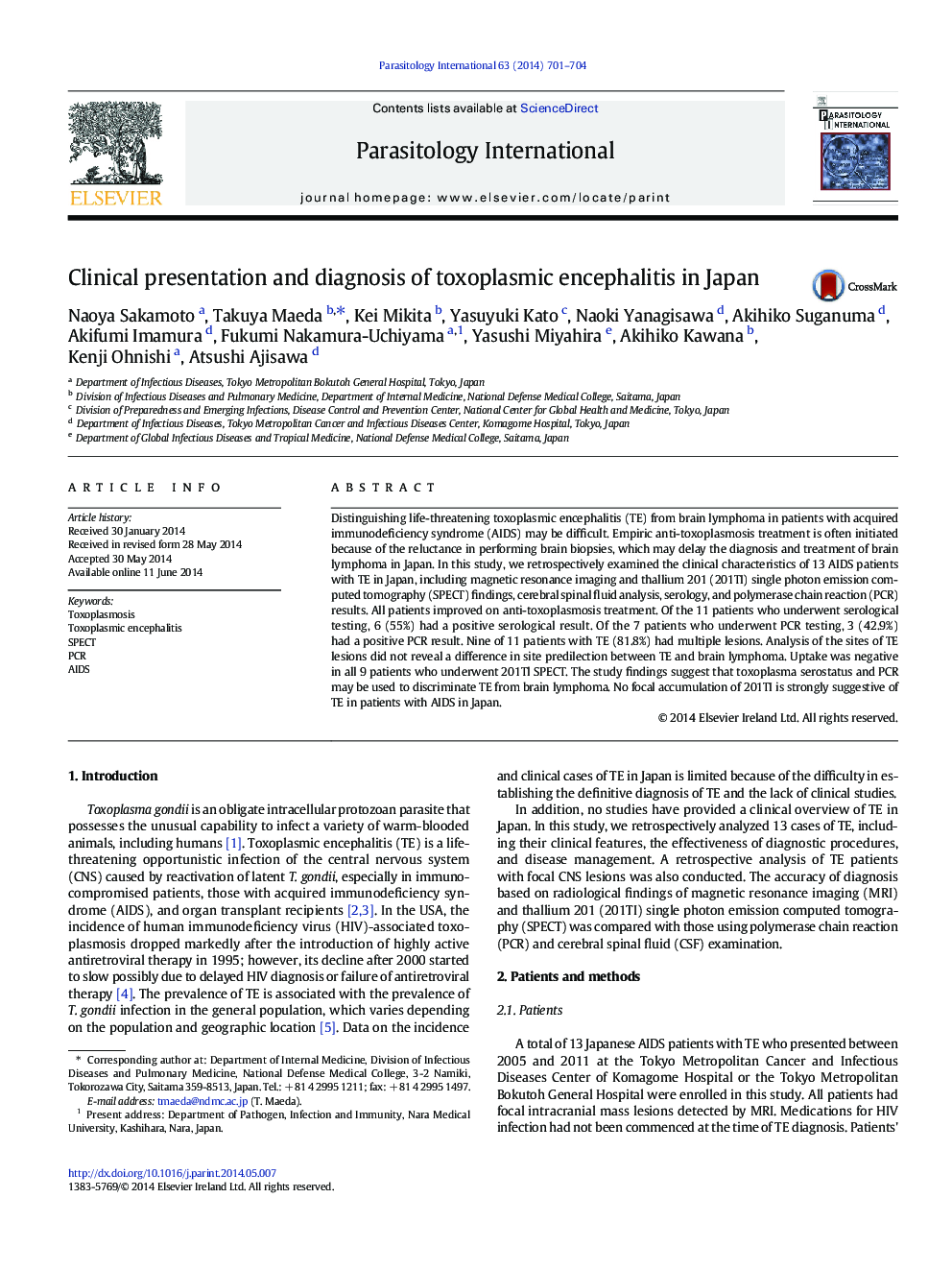| Article ID | Journal | Published Year | Pages | File Type |
|---|---|---|---|---|
| 3417754 | Parasitology International | 2014 | 4 Pages |
•6 of 11 patients with toxoplasmic encephalitis had specific IgG antibodies.•Sensitivity of PCR diagnosis was relatively low.•CSF abnormalities were non-specific for toxoplasmic encephalitis.•201Tl SPECT can be used to distinguish between CNS lymphoma and T.gondii necrosis.
Distinguishing life-threatening toxoplasmic encephalitis (TE) from brain lymphoma in patients with acquired immunodeficiency syndrome (AIDS) may be difficult. Empiric anti-toxoplasmosis treatment is often initiated because of the reluctance in performing brain biopsies, which may delay the diagnosis and treatment of brain lymphoma in Japan. In this study, we retrospectively examined the clinical characteristics of 13 AIDS patients with TE in Japan, including magnetic resonance imaging and thallium 201 (201TI) single photon emission computed tomography (SPECT) findings, cerebral spinal fluid analysis, serology, and polymerase chain reaction (PCR) results. All patients improved on anti-toxoplasmosis treatment. Of the 11 patients who underwent serological testing, 6 (55%) had a positive serological result. Of the 7 patients who underwent PCR testing, 3 (42.9%) had a positive PCR result. Nine of 11 patients with TE (81.8%) had multiple lesions. Analysis of the sites of TE lesions did not reveal a difference in site predilection between TE and brain lymphoma. Uptake was negative in all 9 patients who underwent 201Tl SPECT. The study findings suggest that toxoplasma serostatus and PCR may be used to discriminate TE from brain lymphoma. No focal accumulation of 201TI is strongly suggestive of TE in patients with AIDS in Japan.
Graphical abstractFigure optionsDownload full-size imageDownload as PowerPoint slide
